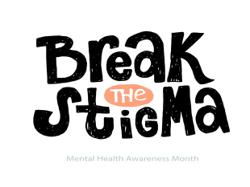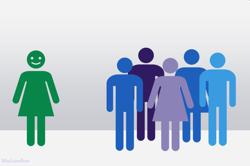We need to address the very real fears people have that, if they seek help for mental health issues or reveal that they’re struggling, they might lose their jobs or be disowned by friends and family. — 123rf.com
During World Mental Health Day on Oct 10, 2023, Malaysian Prime Minister Datuk Seri Anwar Ibrahim called for the end of mental health stigma. He reminded us that mental health is something we all have and urged that we move away from attitudes that stop people seeking support.
Dr Chua Sook Ning, clinical psychologist and founder of mental healthcare NGO Relate Malaysia, shares some practices for tackling the problem.
“Stigma consists of three components: stereotypes, prejudice, and discrimination. Stereotypes are beliefs we have about people with mental illness; prejudice is our endorsement of stereotypes and the emotional reaction to the stereotypes; and discrimination is the actions we take due to our prejudicial attitudes,” she says.
While mental health campaigns tend to address public stigma, it’s common for people to have self-stigma as they internalise the shame they experience, which can increase unhelpful social behaviours and stop the person from asking for help. For example, if a young person is depressed, a family member might call him/her weak or useless, and so they come to see themselves as weak and incompetent along with other harmful stereotypes about themselves.
Agreeing with the belief, they might experience negative emotional reactions such as a feeling of being worthless or unlovable. Their behaviour then follows on from these beliefs. For example, due to a lack of energy or motivation, they might find it difficult to study or perform well at work.
As mental health awareness has increased over the years, so too have the number of campaigns to “break the stigma” towards mental health issues. However, not all strategies are equally effective, with some having little to no effect.
Dr Chua cites studies from 16 countries that say improving mental health literacy, while important for education purposes, doesn’t necessarily change attitudes toward mental ill-health. Similarly, using euphemistic language has had little effect and actually might worsen stigma. What was initially known as “mental retardation” has since been referred to as “intellectual disability”. But a change in the label has not led to a change in attitudes.
Dr Chua also says that public education campaigns that frame mental illness as brain diseases lead to less blame but also less willingness to help, and an increased likelihood of the public seeing people with mental illness as dangerous.
So what will work in lessening the stigma surrounding mental health problems?
“There are lots of strategies that work. For example, we tend to fear what we don’t understand and so being around people with a mental illness helps reduce stigma and reduce levels of prejudice,” says Dr Chua.
“Campaigns that highlight the effort made by people to help themselves deal with mental health problems also strengthens people’s sympathy and willingness to help.
“It’s also helpful for campaigns to highlight that recovery is typical of people with mental ill-health. If we hear of stories about people’s recovery, it leads to a lessening of stigma and more willingness to help those who need our support.”
The Prime Minister’s call to “stop the stigma” is a valuable intervention showing the Malaysian government’s commitment to improving mental health awareness, support, and services.
In addition, any efforts and campaigns to stop the stigma need to consider what works well and what doesn’t. To be effective, communication needs to be carefully crafted.
“Decades of research on stigma change show that while we can eliminate stigma, many well-intentioned and expensive approaches were ineffective, and some even led to greater stigma,” says Dr Chua.
“Ending mental illness stigma is necessary and achievable, but efforts to do so must be informed, persistent and sustainable.
“Given the lack of anti-stigma research in Malaysia and data on effectiveness of campaigns, I also recommend pre-and-post campaign studies to help us develop better and more effective campaigns to tackle stigma in Malaysia.
“It’s also worth keeping in mind that conversations and raising awareness alone aren’t going to reduce stigma. There has to be a concerted and active effort if we really want to see results, and to achieve the most important goal, which is making mental health support available to all who need it.”
There’s still a long way to go to successfully tackle the stigma surrounding mental ill-health, mainly because it’s difficult to change attitudes that are rooted in deep or long-held beliefs. As a result, creative strategies are needed to make progress.
We also need to address the very real fears people have that, if they seek help or reveal that they’re struggling, they might lose their jobs or be disowned by friends and family. We might tell people, “It’s OK to not be OK”, but in reality, the opposite often seems to be true. This can change if there is a will to make a difference and if we all do what we can to make it happen.
Sunny Side Up columnist Sandy Clarke has long held an interest in emotions, mental health, mindfulness and meditation. He believes the more we understand ourselves and each other, the better societies we can create. If you have any questions or comments, email lifestyle@thestar.com.my. The views expressed here are entirely the writer's own.





